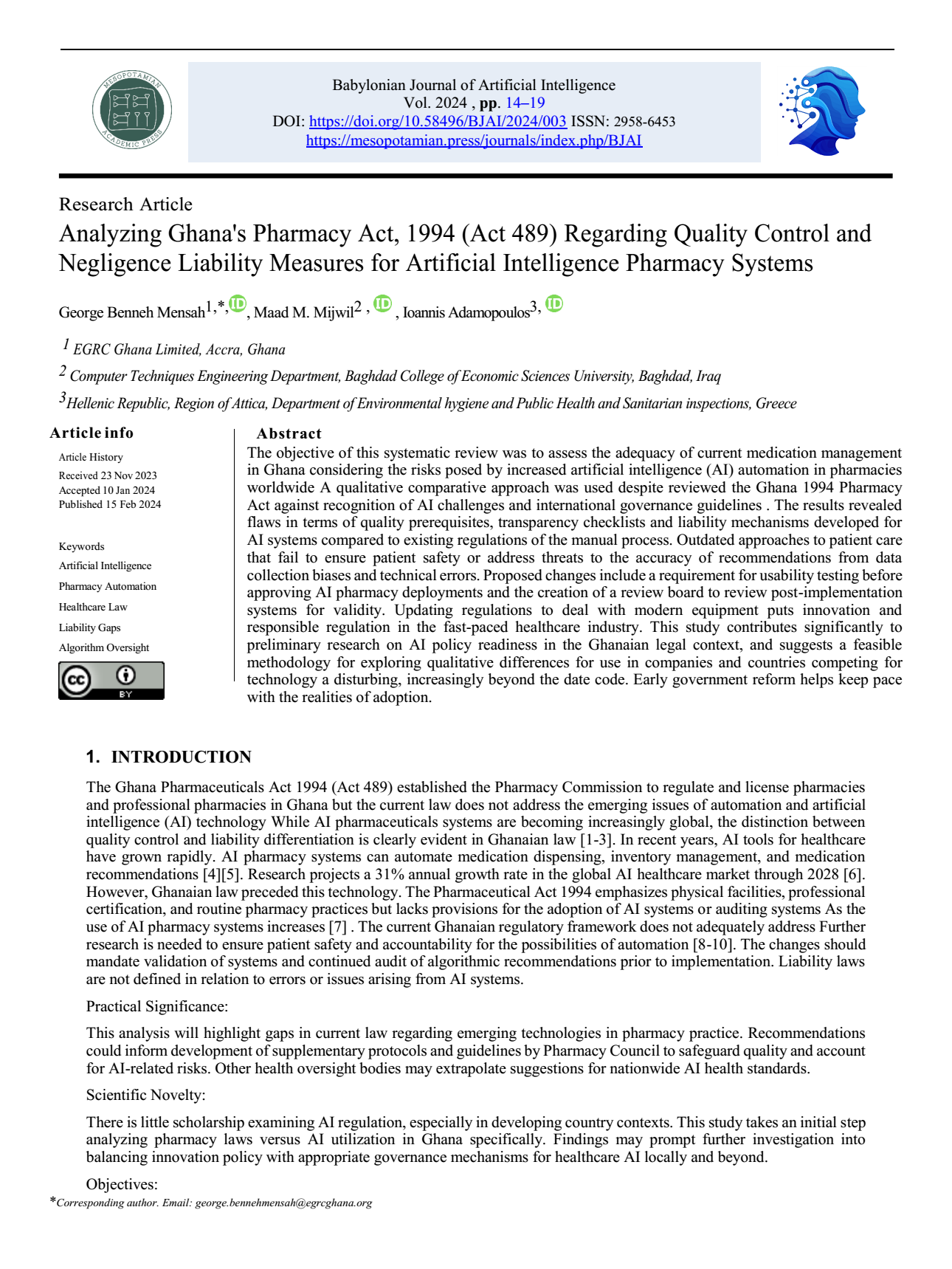Analyzing Ghana's Pharmacy Act, 1994 (Act 489) Regarding Quality Control and Negligence Liability Measures for Artificial Intelligence Pharmacy Systems
Main Article Content
Abstract
The objective of this systematic review was to assess the adequacy of current medication management in Ghana considering the risks posed by increased artificial intelligence (AI) automation in pharmacies worldwide A qualitative comparative approach was used despite reviewed the Ghana 1994 Pharmacy Act against recognition of AI challenges and international governance guidelines . The results revealed flaws in terms of quality prerequisites, transparency checklists and liability mechanisms developed for AI systems compared to existing regulations of the manual process. Outdated approaches to patient care that fail to ensure patient safety or address threats to the accuracy of recommendations from data collection biases and technical errors. Proposed changes include a requirement for usability testing before approving AI pharmacy deployments and the creation of a review board to review post-implementation systems for validity. Updating regulations to deal with modern equipment puts innovation and responsible regulation in the fast-paced healthcare industry. This study contributes significantly to preliminary research on AI policy readiness in the Ghanaian legal context, and suggests a feasible methodology for exploring qualitative differences for use in companies and countries competing for technology a disturbing, increasingly beyond the date code. Early government reform helps keep pace with the realities of adoption.
